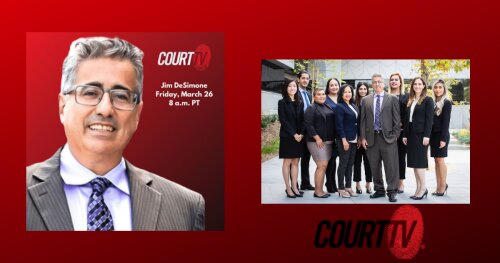Best Native People Lawyers in California
Share your needs with us, get contacted by law firms.
Free. Takes 2 min.
Or refine your search by selecting a city:
List of the best lawyers in California, United States
About Native People Law in California, United States
California is home to a diverse population of Native people, with more than 100 federally recognized tribes and many other non-federally recognized tribes living throughout the state. Native people have a rich cultural, historical, and legal presence in California, and their rights are protected under a complex network of federal, state, and tribal laws. Native people law in California covers a wide range of topics, including tribal sovereignty, land rights, resource management, child welfare, cultural preservation, and the government-to-government relationship between tribes and state or federal authorities.
Why You May Need a Lawyer
There are many situations where individuals or tribes may require legal help related to Native people matters. Common scenarios include disputes over land and water rights, recognition of tribal status, questions of jurisdiction and sovereignty, protection of sacred sites, child welfare cases involving the Indian Child Welfare Act (ICWA), economic development or gaming law, and negotiation of agreements between tribes and government agencies. Individuals facing discrimination, needing assistance in accessing healthcare or educational benefits, or seeking help with enrollment and membership matters may also benefit from consulting with a lawyer who specializes in Native people law.
Local Laws Overview
California law acknowledges the unique status and rights of Native people and their tribes. Key aspects of local laws include recognition of tribal sovereignty, support for the protection of cultural resources such as burial sites and artifacts, and adherence to federal legislation like the Indian Child Welfare Act and the Native American Graves Protection and Repatriation Act. The state also has policies encouraging consultation and cooperation with tribes, and specific state agencies are dedicated to Native people issues, including the California Native American Heritage Commission. Additionally, land use laws, environmental regulations, and water rights may have special considerations for Native people and tribes in California.
Frequently Asked Questions
What is tribal sovereignty?
Tribal sovereignty refers to the right of Native tribes to govern themselves, make their own laws, and manage their internal affairs. While tribes must adhere to certain federal laws, they generally have authority over their land, members, and government operations.
How are tribes recognized in California?
There are both federally recognized and non-federally recognized tribes in California. Federal recognition provides important benefits, such as eligibility for specific government programs and the right to self-governance. Some tribes are only recognized by the state and may not receive the same benefits as federally recognized tribes.
What legal issues do Native people face around land rights?
Land rights issues may involve disputes over reservation lands, claims to ancestral territory, land use conflicts with state or local governments, and challenges regarding protection of sacred sites. Legal representation can help resolve these complex issues.
What is the Indian Child Welfare Act (ICWA)?
The Indian Child Welfare Act is a federal law that aims to keep Native children with Native families, recognizing the importance of tribal culture and protecting against unwarranted removal of Native children from their communities.
Are Native people exempt from state laws?
Tribes possess certain rights and powers, but they are not automatically exempt from all state laws. The specific application depends on the legal issue, the land in question, and whether state, federal, or tribal jurisdiction applies.
How do economic development and gaming laws work for tribes?
Tribes often use economic development opportunities, including gaming and casinos, to support their communities. These enterprises are governed by agreements involving tribal, state, and federal law, particularly the Indian Gaming Regulatory Act.
How do I verify if I am eligible for tribal membership or services?
Eligibility for tribal membership is determined by each tribe, usually based on lineage or blood quantum requirements. Individuals interested in membership should contact the relevant tribal office for guidance.
What rights do Native people have regarding cultural preservation?
Native people have specific legal rights to protect sacred sites, burial grounds, and cultural artifacts under both state and federal law. Consultation with tribes is often required before certain land developments can proceed.
What should I do if my rights as a Native person are being violated?
If you believe your rights are being violated, you can seek assistance from your tribal government, legal aid organizations, or lawyers specializing in Native people law. Documentation and prompt action are important to protect your interests.
Can non-Native people be involved in tribal legal matters?
Non-Native people may become involved in tribal legal matters through land ownership disputes, business relationships, or as family to tribal members. It is important to respect tribal jurisdiction and seek legal advice to understand your rights and responsibilities.
Additional Resources
There are several governmental bodies and organizations dedicated to supporting Native people in California:
- California Native American Heritage Commission
- California Indian Legal Services (CILS)
- Bureau of Indian Affairs - Pacific Region
- National Congress of American Indians
- Native American Rights Fund
- State of California Tribal Affairs Office
- Individual tribal governments and councils
These resources can offer legal support, advocacy, and information on Native people rights and services.
Next Steps
If you need legal assistance regarding Native people matters in California, start by identifying the specific issue you are facing. Collect any documentation, correspondence, or evidence that may be relevant to your case. Reach out to your tribal government or local organizations such as California Indian Legal Services for guidance and possible legal representation. If necessary, seek a consultation with an attorney who specializes in Native people law. Acting promptly can help protect your rights and interests, and ensure that any legal processes are handled appropriately and respectfully.
Lawzana helps you find the best lawyers and law firms in California through a curated and pre-screened list of qualified legal professionals. Our platform offers rankings and detailed profiles of attorneys and law firms, allowing you to compare based on practice areas, including Native People, experience, and client feedback.
Each profile includes a description of the firm's areas of practice, client reviews, team members and partners, year of establishment, spoken languages, office locations, contact information, social media presence, and any published articles or resources. Most firms on our platform speak English and are experienced in both local and international legal matters.
Get a quote from top-rated law firms in California, United States — quickly, securely, and without unnecessary hassle.
Disclaimer:
The information provided on this page is for general informational purposes only and does not constitute legal advice. While we strive to ensure the accuracy and relevance of the content, legal information may change over time, and interpretations of the law can vary. You should always consult with a qualified legal professional for advice specific to your situation.
We disclaim all liability for actions taken or not taken based on the content of this page. If you believe any information is incorrect or outdated, please contact us, and we will review and update it where appropriate.
Browse native people law firms by city in California
Refine your search by selecting a city.
















